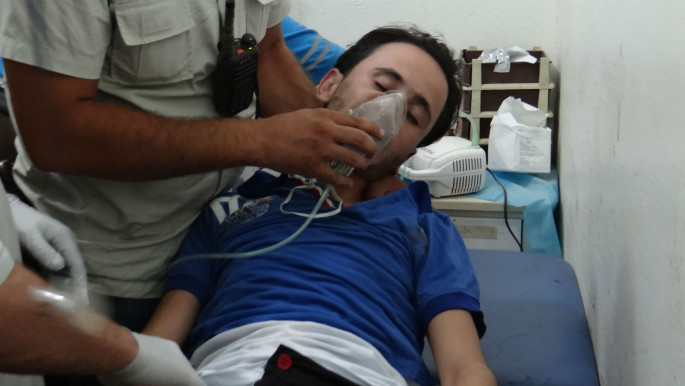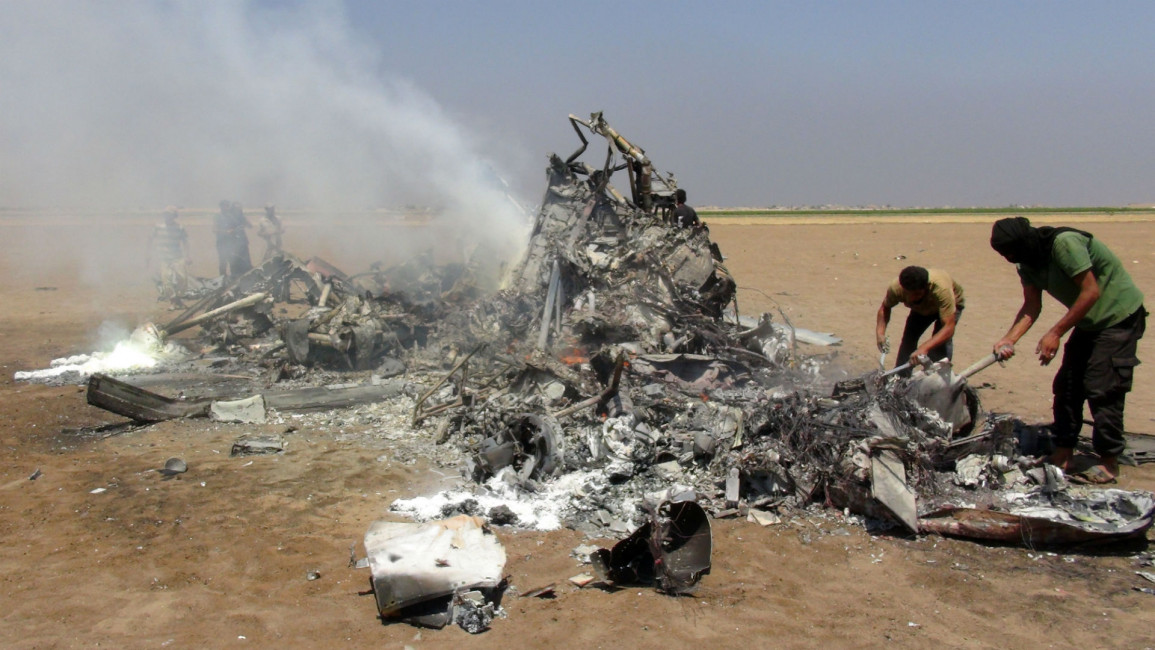Syrian rebels won't unconditionally return Russian aircrew bodies
The Syrian National Coalition said that the bodies of five Russian aircrew killed in Idlib will only be returned if Moscow's "revenge" bombing of rebel areas stop.
The opposition body said that residential areas of Syria have been intensely bombarded with illegal explosives and gas
since the downing of a Russian helicopter in Idlib last week.
At a press conference on Monday, the Turky-based political body accused regime forces of launching "revenge" gas attacks on the rebel-held town of Saraqib, close to the site of the downed Russian helicopter.
"Recovering the bodies of the Russian crew members whose helicopter crashed on the outskirts of Saraqib can only be achieved through negotiations," an SNC statement said.
"The Russian invaders must realise that taking revenge on civilians and threatening to annihilate the town of Saraqib will only serve to further complicate the situation."
Russian war planes have "relentlessly" targeted mainly residential areas in Saraqib ever since, forcing 35,000 civilians to flee their homes, the opposition said.
The small town was reportedly hit by over 60 air raids on Sunday.
 |
|
| Cases of severe breathing difficulties have been reported [Getty] |
The head of the Syrian Civil Defence in the city, Osama Bareesh, said Saraqib has been "totally devastated".
"Russian and Syrian warplanes have not left any location unshelled. Locals have fled their homes and are sleeping in the open," Bareesh said in an online statement.
The world's chemical watchdog on Wednesday voiced concerns over reports of the use of chlorine gas in Saraqib, which has been blamed on regime forces.
Medics in Saraqib - around 40 kilometres south-west of Aleppo - have reported dozens of cases of severe breathing difficulties, saying the symptoms showed all the signs that a chlorine gas attack took place.
At least 33 people - mostly women and children - were affected by the gas, a spokesman for the Syria Civil Defence said.
A neurologist, Ibrahim al-Assad, said he treated 16 of 29 cases brought to his hospital, most of whom were women and children.
Chlorine gas attacks have been reported in the town before, but the lack of chemical labs or independent testers makes it difficult to verify these claims.
The regime denies that is has launched chlorine gas attacks, and has in the past blamed rebels for self-inflicted attacks.
In 2013, the Syrian regime was suspected of launching a sarin gas attack on a rebel-held Damascus suburb which left hundreds of civilians dead.
The Ghouta massacre saw the US threaten to launch air strikes against the Syrian regime, but last minute acquiescence from Damascus saw it hand over its declared chemical stockpiles to avert American military intervenion.
Syria is suspected to have secretly retaining some stockpiles, and is suspected of carrying out dozens of chemical attacks on opposition areas since.



